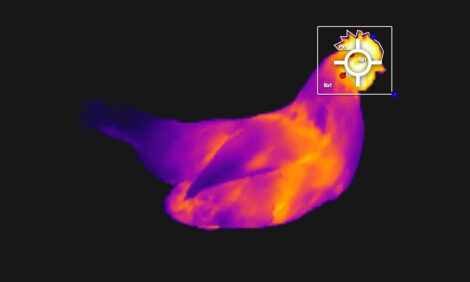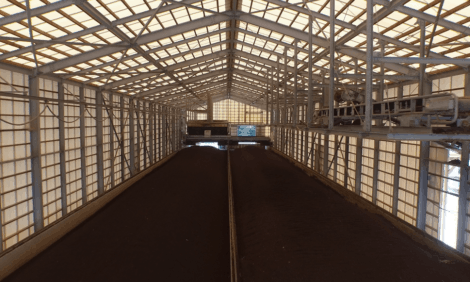



World shuts down borders to Britain amid new coronavirus strain
What does closed borders mean for business and holiday travelers and the British food supplyMore than 40 countries have suspended travel for Britons after Prime Minister Boris Johnson warned that a mutated variant of the virus, up to 70% more transmissible, had been identified in the country. Saudi Arabia, Kuwait and Oman closed their borders completely, according to Reuters.
Several other nations have suspended travel from Britain including France, Germany, Italy, the Netherlands, Austria, Ireland, Belgium, Israel and Canada - although scientists said the strain may already be circulating in countries with less advanced detection methods than the United Kingdom.
The discovery of the new strain, just months before vaccines are expected to be widely available, sowed fresh panic in a pandemic that has killed about 1.7 million people worldwide and more than 67,000 in Britain.
Australia said two people who travelled from the United Kingdom to New South Wales state were found to be carrying the mutated virus.
New York Governor Andrew Cuomo urged the U.S. government to take steps to prevent the new strain entering the country, which has been worst hit by COVID-19 with almost 318,000 deaths.
"It's high time the federal government takes swift action, because today that variant is getting on a plane and landing in JFK, and all it takes is one person," he said.
U.S. Assistant Health Secretary Brett Giroir said nothing had yet been decided on any travel ban.
Johnson will chair an emergency response meeting on Monday to discuss international travel, in particular the flow of freight in and out of Britain. EU officials held a meeting on coordinating their response.
France shut its border to arrivals of people and trucks from Britain, closing off one of the most important trade arteries with mainland Europe.
As families and truck drivers tried to navigate the travel bans to get back home in time for Christmas, British supermarket chain Sainsbury's said shortages would start to appear within days if transport ties were not quickly restored.
"If nothing changes, we will start to see gaps over the coming days on lettuce, some salad leaves, cauliflowers, broccoli and citrus fruit – all of which are imported from the continent at this time of year," Sainsbury's said.
France's FNTR national road haulage federation said: "No driver wants to deliver to the UK now, so the UK is going to see its freight supply dry up."
'Sick man of Europe'
The global alarm was reflected in financial markets.
European shares slumped, with travel and leisure stocks bearing the brunt of the pain; British Airways-owner IAG and easyJet fell about 8%, while Air France KLM lost about 7%.
U.S. carriers Delta Air Lines also suffered, with American Airlines, United Airlines and Southwest Airlines dropping 5% to 7% in premarket trading.
The British pound tumbled 2.5% against the dollar, and was on course for its biggest one-day drop since March, while the yield on two-year UK government bonds hit a record low.
Britain's tabloids bemoaned the crisis.
"Sick Man of Europe", the Daily Mirror newspaper said on its front page beside a picture of Johnson while the Sun newspaper said "French show no merci".
Johnson cancelled Christmas plans for millions of British people on Saturday due to the more infectious strain of the coronavirus, though he said there was no evidence that it was either more lethal or caused a more severe illness.
The new variant and restrictions in Britain compound the chaos as the country prepares to finally part ways with the European Union, possibly without a trade deal, when the Brexit transition period at 2300 GMT on Dec. 31.
Talks on a Brexit trade deal were due to continue on Monday.
The new variant, which scientists said was 40%-70% more transmissible, is rapidly become the dominant strain in parts of southern England, including London.
Experts stressed, though, that there was no evidence that vaccines, including the one made by Pfizer and BioNtech being deployed in Britain, would not protect against this variant.
Asian infections
Cases of the new strain have also been in detected in some other countries, including Italy and the Netherlands. Some scientists said the prevalence discovered in Britain might be down to detection.
"Britain is simply the country which finds these mutations the most because they are looking for them more. There are countries that hardly search or do not search at all," Marc Van Ranst, a virologist from the Rega Institute for Medical Research in Belgium, told Belgian broadcaster VRT.
"I think we will find in the coming days that a lot of other countries will find it."
The new strain has been identified at a time when COVID-19 cases have surged in several Asian countries that had previously contained the pandemic, prompting localised lockdowns and more aggressive testing.
South Korea said it was reviewing new measures for flights from Britain, and would test twice those coming in from there before they were released from quarantine.
New cases climbed to over 1,000 a day in South Korea several times last week. It reported on Sunday an outbreak in a Seoul prison where 188 inmates and staff were infected.
Thailand said it was testing tens of thousands of people, and extended curbs on movement, following its worst outbreak yet which began at a market in a province that is a seafood industry hub and home to thousands of migrant workers.
Australia cancelled dozens of domestic flights on Monday, while New South Wales ordered more than a 250,000 people into a lockdown.









